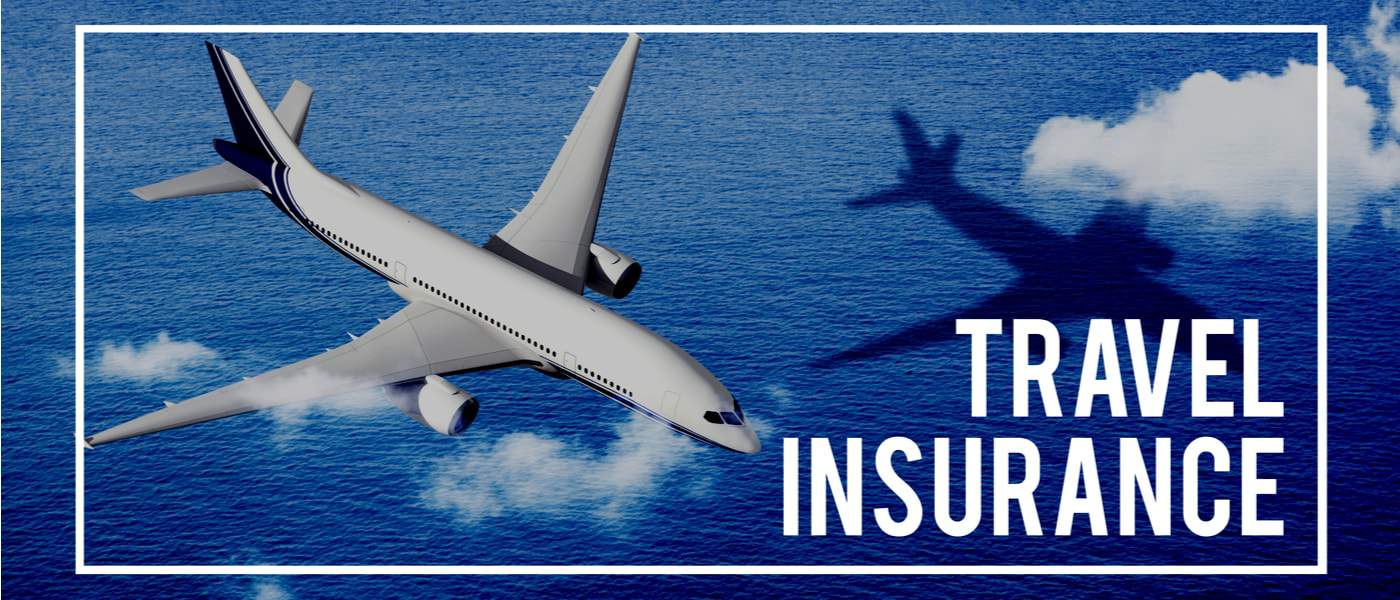Insurance
Best International Travel Insurance – Complete Guide

One of the most critical aspects of preparing for a trip abroad is getting travel insurance, which many people ignore. Purchasing travel insurance, often known as trip insurance or travel protection, can safeguard you against unwanted and unexpected financial loss if you have to cancel your trip or face a large medical bill that you cannot pay.
What is International Travel Health Insurance?
Travel insurance is a sort of insurance (or protection) that is designed to cover all or a portion of the cost of any medical bills incurred while traveling abroad, trip cancellation, lost or stolen possessions, travel delays, and so on.
Travel insurance is meant to cover expenses for unexpected events that occur after the policy goes into force. As a result, it rarely covers pre-existing diseases like diabetes or pregnancy. Similarly, if you obtain travel insurance after an incident has occurred, the insurance company will not cover it.
Keep in mind that travel insurance differs from foreign health insurance, which is designed for expats and students who are not simply visiting. People living abroad, on the other hand, can buy travel insurance if they plan to go outside of their home country.
Also, digital nomads should understand the distinction between the two, as they must obtain medical health insurance rather than travel insurance.
What Does Travel Insurance Cover?
Most travel insurance plans cover the following, although the coverage changes from one company to the other, as well as from one specific plan to the other:
- Medical treatment. If you get into an accident or become ill during your vacation, your travel insurance will cover doctor consultations, emergency treatment, hospitalization, surgery, prescription drugs and medicine, and so on.
- Trip cancellation, interruption, or curtailment. If your vacation is cut short or cancelled for any reason, you will be compensated for any lost travel and/or lodging expenses. The reasons considered appropriate for reimbursement vary depending on the policy. You can also add a Cancel For Any Reason add-on to your current policy.
- Repatriation of remains. In the case of death. It can also include overseas funeral expenses.
- Lost, stolen, or damaged possessions, but not is it is due to recklessness.
- Missed flight: If the flight you missed was through no fault of your own (ie. the airline rescheduled or had a delay) the insurance company will cover any expenses related to it.
- Return of a minor.
- Hijacking.
Additional travel insurance coverage
There are some travel insurance plans which will cover things that are outside of the “standard” coverage, but you will have to pay additionally. This can include:
- AD&D (accidental death and dismemberment)
- Acute onset of pre-existing conditions
- Dental coverage
- Rental car coverage
- Dangerous sports medical coverage
- Natural disaster coverage
- Terrorism coverage
- Cancel for any reason travel insurance
What is Not included in Travel Health Insurance?
Most travel insurance companies usually refuse coverage for the following scenarios:
- Pre-existing conditions. If you have a disease such as diabetes, the insurance company will usually not cover any costs related to the disease, such as medications or doctor check-ups. Some companies may, however, cover the acute onset of a pre-existing condition.
- If you are traveling while pregnant, travel insurance companies will usually not cover any expenses related to the pregnancy, such as giving birth, general check-ups, or morning sickness. There are some plans which offer travel insurance for complications of pregnancy.
- Medical treatment as a result of drug or alcohol consumption.
- Medical treatment as a result of reckless behavior and/or engaging in dangerous sports activities.
- Travel insurance for cancellation during an ongoing event (eg. extreme weather conditions).
- Traveling ravel against government advice.
Does Travel Insurance Have Disability Coverage?
Yes, some travel insurance companies do have coverage for disabilities and pre-existing conditions, but not all. Disability travel insurance is not included in policies by default and in the majority of cases, disabled people will have to pay more to get the additional coverage they need.
You can find coverage for the following instances (on top of the standard travel insurance coverage):
- Medical treatment related to your disability/pre-existing condition.
- Loss or damage of disability and mobility equipment.
- Replacement of essential medication.
- Replacement of an essential career.
In the end, it really comes down on a case-by-case basis and you have to contact a travel insurance company to discuss how your disability fits into their policies.
The coverage for physical disability changes depending on the type of disability it is and whether it is “stable”.
What Activities Are Covered by Travel Insurance?
Every travel company has its own policy rules regarding what they will offer coverage for. However, in most cases, travel insurers will offer coverage if you get into an accident doing one of the following activities:
- Swimming
- Kayaking
- Trekking
- Surfing
- Cycling
- Recreational sports
Even the following activities may be covered by some insurers under certain circumstances:
- Skiing (if it is done during skiing season)
- Scuba diving (if it is done under the supervision of licensed instructors and only up to a certain depth, usually 10-30 meters)
- Abseiling and rock climbing (if you have to use special equipment, you will likely not be covered)
- Sailing (only within a short distance from the shore)
- White water rafting (only for rapids 1, 2, and 3)
- Bungee jumping (depending on the specific policy)
What Activities Are Not Covered by Travel Insurance?
There are certain holiday activities that travel insurance companies do not offer any sort of coverage for, such as:
- Base jumping
- Off-the-season skiing
- Motorbiking and motor racing
- Hunting
- Partaking in professional sports
- Running with bulls
If by any chance, your travel insurance company does offer coverage for any of the aforementioned activities, the cost of the overall policy will be higher.
How to Choose the Best Travel Insurance Plan?
There is no single answer to this type of question since it depends on your specific needs and the type of trip you are taking. However, when looking for the best travel insurance policy for your needs, you have to look for the following features:
- The actual travel insurance company. Make sure that you’re purchasing your policy from a reputable company.
- The coverage that the policy offers:
- Is everything you consider important covered? For example, do you have coverage for medical expenses? How much will you have to pay from your own pocket before the insurance company steps in?
- What holiday activities are covered by your insurance? If you’re going skiing, you will likely want a policy which will cover skiing-related accidents, and so on.
- Is repatriation covered?
- Is there reimbursement for trip interruption or cancellation, and if yes, what’s the nature of it?
- Will you be covered if someone steals your belongings?
- The cost of the policy. See whether the cost of the policy is within your price range but at the same time, keep in mind that inexpensive policies have limited coverage. However, that doesn’t mean you can’t use some handy money-saving tricks (see below).
How to Get Insurance for International Travel?
You can get travel insurance online, through brokers who are sort of middle-men that work directly with travel insurance companies. This is usually the best way because they only work with reputable companies and can offer travel insurance plans customized to your needs, meaning you don’t have to go hunt down insurance companies yourself.
Moreover, when deciding on what travel insurance plan to purchase, it is important to really read through and compare different policies, so you know what you are paying for.
Here are the steps you need to go through when purchasing travel insurance for international travel:
- Decide how much coverage you need.
- Research online.
- Find out if the policy offers coverage for where you are going.
- Read the fine print carefully.
- Buy the travel insurance policy early.
Decide How Much Coverage You Need
When deciding how much coverage you need, you have to think of where you are going, what activities you will do, how long you are staying, and what you’re taking with you. So, you should always choose a policy which covers at least medical assistance, cancellation, and lost/stolen luggage.
- When it comes to medical travel insurance, don’t go for the cheapest option because those usually have very limited coverage. If you do have a medical emergency while abroad, you may be left with a large medical bill which you have to pay mostly yourself.
- If you intend to take valuable items with you, you may want to insure them in case they are stolen or lost.
- If the trip is very expensive, you can consider higher premiums and more covered reasons for cancellation.
- If you are going skiing (or some other holiday activity) make sure it is included in your policy as well.
Research Online
There are numerous travel insurance comparison services, such as TravelersCoverage, that make it easy to compare different insurance products. Once you know what type of coverage you require, you can easily compare plans and select the one that is ideal for you.
Find out If There Is Coverage for Where You Are Going
Before you purchase your travel insurance policy, you have to make sure that it covers your country of destination.
- Travel insurance for US Visa
- Travel insurance for Schengen Visa
- Travel insurance for France Visa
- Travel insurance for Germany Visa
Not all policies are valid for all destinations, and it is rare that a company will offer coverage for a country for which there is a travel warning in place.
Read the Fine Print Carefully
- It is very important that you read the fine print before you actually buy the policy. There can be a lot of confusing or misleading claims, which make you think you have more coverage than you actually do.
- Likewise, you may not know you’re entitled to make a claim unless you carefully read the fine print, tiresome as it may be.
Buy the Travel Insurance Policy Early
- It is also critical to purchase travel insurance as soon as possible, so that if you need to cancel, you are compensated for any financial losses. You will never receive 100% of your money back, but depending on the policy, you may receive a significant portion of it back.
When is the Best Time to Get Insurance?
The best time to buy travel insurance is within 15 days after booking your trip, starting to pay for it, or making your initial payment. As the departure date approaches, you can add more deposits to your coverage.
If you buy your insurance last minute or after 15 days from the day you scheduled the trip, you may not be able to acquire full coverage.
Furthermore, if a natural disaster, such as a hurricane, occurs or is predicted to occur near your intended location and you purchase insurance after being warned, trip cancellation will not be covered.
How Does International Travel Insurance Work?
If any of the terrible situations covered by your travel insurance plan occur, you can make a claim with the insurance provider, and they will reimburse you for a portion or all of the costs, depending on the policy terms.
For example, if you become unwell while abroad, you can obtain a doctor’s note and a medical bill and submit them to your insurance company to file a claim for compensation.
Although most people believe that travel insurance just includes travel health insurance, there is much more to it. It also covers any expenditures that you may incur if you have to abruptly cancel your trip, if your luggage or other personal possessions are stolen or lost, and repatriation of remains in the event of death.
How to File a Travel Insurance Claim?
You must file a claim with your travel insurance company as soon as possible. If you want the company to consider your claim valid and cover it, you’ll need to provide all supporting documentation. Examples include:
- If you need medical assistance. If you are involved in an accident or become unwell while traveling abroad, you must keep any medical bills, doctor notes, and other papers that establish you require medical care. Once you submit your claim, the insurance company will reimburse you for your treatment expenses. In nations such as the United States, if you have travel health insurance via a recognized company, the hospital may be allowed to bill the insurance company directly.
- Stolen possessions or a car accident. If your personal possessions are stolen or you are involved in a car accident while on your trip, you must call your travel insurance provider as soon as possible to understand how to proceed. You must also submit a police report and keep the proof for when you file an insurance claim.
- Trip cancellation. If you have to cancel your vacation, you must provide a reason to the insurance company. For example, if the cause was work-related, attach a letter from your employer. If the cause was medical, include a doctor’s note, etc.
Remember:
- Make sure to contact your travel insurance providers before you depart the country you are visiting so you know what documents you need when making the claim.
- In some cases, travel insurance providers require that you contact them immediately in case something happens.
- Most importantly, read the insurance policy carefully to find out the exact steps your travel insurance company requires you to take to make a claim.
- Make copies of any documents that prove you are eligible for reimbursement.
How Much Does Travel Insurance Cost?
As a general guideline, travel insurance costs between 4% and 12% of the total cost of your trip. More expensive excursions typically cost more to insure since, if the trip is canceled for any reason, the amount of money that the travel insurance company must reimburse is greater. However, the cost varies based on the following factors:
- The coverage you need. policies that only provide basic health coverage will be less expensive than policies that incorporate additional aspects like as trip cancellation, theft of property, and so on. Even with basic health insurance, there are various levels of coverage that might influence the cost of the insurance plan.
- The duration of your trip. The same plan, with the same amount of coverage, will cost more for a trip of 30 days than it will if you are only traveling for only one week or a couple of days.
- How many people are included in your plan. Similarly, if you only need to cover yourself in the plan, it will be less expensive than if you are purchasing health insurance for your entire family.
- Your age. Prices of travel insurance plans increase along with the age of the traveler. People over the age of 65 usually pay more for plans because they are more likely to make a claim, whereas if you have young children, you may be able to add them to your plan with no extra costs.
- Your destination. Some travel insurance companies also look at where you are traveling to when pricing your plan since some destinations have a higher level of risk than others.
Is Medical Insurance for Traveling Worth It?
Whether or not travel insurance is worthwhile depends on how much you stand to lose if the trip is canceled. If you’ve already paid for your hotel room, airplane ticket, and other activities, purchasing travel insurance for a fraction of the cost may be worthwhile.
However, if you are flying to stay with family and have booked a low-cost round-trip ticket, you are unlikely to lose much money, therefore travel insurance may be a waste of money.
Another reason to have travel insurance is if you are visiting a country with high health-care costs, such as the United States. If you get sick or have an accident in a country with high health-care costs, your medical bill can easily reach tens, if not hundreds, of thousands of dollars, so the insurance fee is only a portion of that.
Finally, it is up to you to weigh the options and decide whether or not to purchase travel insurance.
How to Save Money on Travel Insurance?
Although it is a known fact that travel insurance policies with lower prices have less coverage and may end up costing more if you need to make a claim, you can still make smart purchases and save money on your travel insurance:
- Do not buy from your travel agency or airline. If you book a trip or flight, the tour agencies or airlines will sometimes offer complimentary travel insurance as a package deal. Although it is convenient, in many cases, they have additional fees, and you will end up paying more for travel insurance than you need or what you are actually getting.
- See if you can get it online. This is not only better because it allows you to compare more policies through comparison websites, but a lot of travel insurers offer discounts for online purchases.
- Buy it early. Try to buy travel insurance as soon as you book a trip because it will cover for any costs that happen between then and the time the trip actually takes place.
- Know what you are insuring. The term “better safe than sorry” may be true, but there is also such a thing as too safe. For example, if you have a refundable trip, don’t get reimbursement coverage, since travel insurance companies will only cover non-refundable trips either way.
- Don’t get high premiums on baggage loss/theft if you’re not taking valuable items with you.
- Get group insurance. If you are travelling as a family, getting group travel insurance is cheaper than getting it for each member individually.
- If you travel frequently, get an annual, multi-trip policy rather than a new policy each time you travel. Usually, with an annual policy, there is a limited period of time you are covered for each time you leave the country.
- Check if you already have travel insurance via your credit card.
Note: You should not try to save money on travel insurance by purchasing a policy with insufficient coverage or a large deductible/excess (the amount you must pay out of yourself before the insurance company covers the remainder). If you buy a travel insurance plan with a large deductible, the coverage itself will be less expensive, but if you need to file a claim, you will wind up losing more money.
Credit Card Travel Insurance. What Is It?
Many credit cards have “built-in” travel insurance when you use them to make transactions. It will cover the standard risks, such as medical crises, cancellation, and loss/theft of personal belongings.
Things to know about credit card travel insurance:
- You have to pay an annual fee for it, which is about $100 to $400 per year, depending on the bank.
- The card offers coverage for trip cancellation, interruption, or delay, lost or delayed baggage, rental car insurance, travel accident insurance, and insurance for emergency evacuation.
- Medical travel insurance is secondary, which means it usually only covers the part that your regular travel insurance policy doesn’t.
- It will activate after you buy a flight ticket or, in some cases, book a hotel.
- There is usually a minimum amount you have to pay for the ticket (say, $400) in order for you to be eligible for travel insurance. If you pay less, your card travel insurance won’t activate.
- Credit card travel insurance has a higher deductible/excess than regular travel insurance. That means you have to pay more from your pocket before the insurance takes over.
- There is usually no age or location limit.
- You may have to notify the bank beforehand if you want to use travel insurance from your credit card.
- You have to pay for your expenses with your card. If you pay by any other means, you won’t be covered.
How to Complain About an Insurer?
If you have any concerns with your travel insurance provider and believe you are being treated unfairly, you have the right to register a complaint. Normally, each travel insurance company has its own internal complaint system. If you are unable to reach an agreement with your travel insurance provider, you have the option of using an external dispute settlement program.
But first, make sure that you have a right to complain in the first place.
- Read over the policy rules carefully. Check for any small print that will explain or put into perspective your situation. Check the “exclusions” list – the activities the insurance policy does not provide coverage for.
- Think of your situation. Are you making the claim because you had an accident due to “recklessness”, or did you leave your luggage unattended, so it was stolen? Most insurance policies do not cover injuries related to extreme sports and reckless behaviour. Even skiing is sometimes off limits if it happens during the off season.
- Do you have all the documents which prove your right to a claim? For example, hospital bills, police reports in case of stolen luggage, receipts and unused tickets for trip cancellation, etc.
However, if you have read all of the tiny print, have all of the supporting evidence, and believe you have been harmed, the first thing you should do is file a written complaint with the travel insurance company immediately. There should be a section of the company that handles client complaints using the proper procedure.
You should give it a few weeks for them to respond to your complaint.
If a resolution is not reached with the company directly, then you can turn to a financial dispute resolution authority. Depending on your country, there are different organizations or institutions you can turn to when you have to reach a resolution to a financial dispute, such as the Financial Conduct Authority (FCA) in the UK or the Australian Financial Complaints Authority (AFCA) in Australia.
Travel Insurance Coverage Alternatives for Worldwide Citizens
Here’s a comprehensive list of travel insurance coverage alternatives tailored to meet the unique requirements of citizens from various countries:
- Travel Insurance for UK Citizens
- Travel Insurance for US Citizens
- Travel Insurance for Canadian Citizens
- Travel Insurance for Australian Citizens












